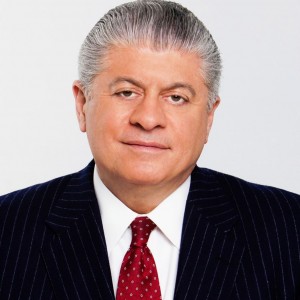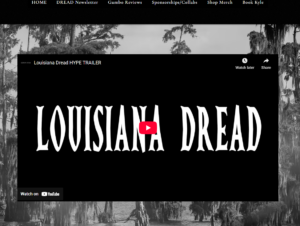All attempts by the government to evaluate the content of speech and deter or punish what the government and its benefactors hate or fear is un-American, unconstitutional and unlawful; and if not stopped, will reduce the American people to serfdom.
During the past three months, the Trump administration has sought to withhold the delivery of governmental benefits in order to punish or reform its perceived political opponents. These opponents — in the understanding of the White House — are colleges and universities that permit speech the White House claims is hateful, law firms that represent clients or employ lawyers who have been vocally critical of the administration, and even one of the 50 states because of language used in a statute and words articulated by its governor.
Can the federal government condition the acceptance of benefits upon the non-assertion of a fundamental liberty? Asked differently, can the feds withhold privileges to those lawfully entitled to them because it disapproves of the speech of the recipients of the privileges? In a word: No.
Here is the backstory.
Under the natural law, embraced by the Declaration of Independence and the Constitution, our rights come from our humanity. These are the rights to live, worship or not, associate or not, say what one thinks and publish what one says, defend yourself using the same means as the government, to be left alone, to travel, and to fairness and due process. These natural rights are basically the rights protected from governmental interference by the Bill of Rights.
The Constitution doesn’t purport to grant fundamental rights. Rather, since the rights pre-existed the nation, the Constitution essentially prohibits the government from interfering with the rights.
The classic example is the First Amendment, which reads in part “Congress shall make no law … abridging the freedom of speech, or of the press.” James Madison, who drafted the amendment, insisted upon referring to “speech” as “the” freedom of speech, in order to emphasize the understanding of the Framers that free speech came before the government. When did it come? It came to all humans at the age of reason.
The rights that come from our humanity are claims against the whole world. Thus, to exercise them, one doesn’t need a government permission slip. To paraphrase John Stuart Mill, if all the world but one were of like mind on an issue and only one person disagreed, because the freedom of speech is a natural right and thus a claim against the whole world — meaning it may be exercised with impunity — the world would have no more right to silence the one dissenter than would he, if he had the power, have the right to silence the world.
This Madisonian/Millian understanding of human rights is the modern articulation of the Natural Law, codified 775 years ago by St. Thomas Aquinas.
Jefferson and the revolutionary generation accepted Aquinas in the Declaration, which states that we are endowed by our Creator with certain inalienable rights. Those rights are inalienable because they are natural and, thus, they cannot be taken away by legislation or command; they can only be voluntarily given up. A bank robber waives his natural rights when he steals money from the bank. Because he denied others the natural right to their money, he has waived his own rights.
When the government gives out privileges, like a driver’s license, the right to vote, a security clearance or research funds, it does so with strings attached. Those conditions must be rationally related to the privilege granted. You will drive the speed limit, you will only vote once in an election, you won’t disclose the secrets you learned, you will not interfere with the human rights of others on your campus.
Much of this is second nature to the recipients of governmental benefits, even though the government grants benefits when it lacks the authority to do so. Financial aid to education and foreign countries is nowhere authorized by the Constitution, but the feds give it away anyway.
Can the feds take these privileges back for the abuse of them? The short answer is: yes, but subject to natural rights. Thus, state governments can withdraw the driver’s license of a persistent speeder or drunk driver, but they cannot withdraw a driver’s license because the driver is driving to a political rally in support of a candidacy adverse to the government that gave him the driving privilege.
The strings attached to governmental benefits cannot infringe upon or chill the exercise of fundamental liberties by the recipients of the benefits.
The Supreme Court articulated this legal principle with respect to individuals in 1972 in Perry v. Sindermann (invalidating the firing of a public school teacher who criticized the board of education) and with respect to the states in 2012 in National Federation of Independent Business v. Sebelius (invalidating a portion of the Affordable Care Act which punished the states for not re-writing statutes).
These cases articulated and reinforced the doctrine against unconstitutional conditions.
That doctrine is the basis for the recent spate of judicially imposed injunctions barring the White House from denying the benefits and privileges the government has given out because the recipients have exercised or declined to exercise their freedom of speech as the White House wishes.
If this doctrine were not the law, then our natural rights would not be inalienable. Imagine the government requiring public speech or enforcing public silence in return for the benefits it gives out. Well, you don’t need to imagine that, as it is happening under our noses today; and but for an independent judiciary, the feds would be able to use the withdrawal of privileges and benefits to silence speech they hate and fear.
Unbridled freedom of speech has been and remains utterly integral to our history, humanity and happiness. It is the principal protection of all other freedoms. Without it, we will become servants to whomever runs the government. Is that what’s coming?
To learn more about Judge Andrew Napolitano, visit https://JudgeNap.com.




